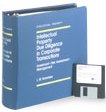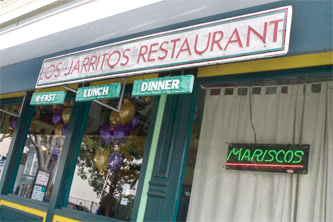Ninth Circuit Affirms Jimi Hendrix Right of Publicity Decision
On June 18, the Ninth Circuit affirmed the Western District of Washington’s grant of partial summary judgment in Experience Hendrix LLC v. The James Marshall Hendrix Foundation, finding that father Al Hendrix had no right of publicity to assign to the plaintiffs/appellants because no posthumous right of publicity existed in New York at the time of Mr. Hendrix’s death.
In its short opinion, filed only 15 days after hearing oral argument, the Ninth Circuit found:
“Experience Hendrix, LLC and Authentic Hendrix, LLC (collectively ‘Experience’) claim they own the exclusive rights to publicize Jimi Hendrix’s personality under the Washington Personality Rights Act (“WPRA”), Wash. Rev. Code § 63.60.030. Applying Washington conflict of law rules, we first determine there is an actual conflict between Washington and New York law because the WPRA recognizes a posthumous right of personality, while New York did not recognize such aright at the time of Jimi Hendrix’s death in 1970.
“Since an actual conflict exists, Washington choice of law rules direct us to determine which jurisdiction has the ‘most significant relationship’ to a given issue, looking at the factors listed in Restatement (Second) of Conflict of Laws § 6 (1971). The WPRA does not contain a statutory directive to apply Washington law to this case because it does not include a choice of law provision nor does the legislative history expressly indicate an intent that the WPRA apply to out-of-state facts. Having considered the factors stated in Restatement (Second) of Conflict of Laws § 6(2) (1971), and in light of the general rule that New York law should apply because it was the domicile of Jimi Hendrix at the time of his death, we conclude that New York has the most significant relationship to the intellectual property rights and the parties at issue here.
“Because we conclude that New York law applies to this case and because we hold that no posthumous right of publicity existed in New York at the time of Jimi Hendrix’s death, we affirm the district court’s grant of partial summary judgment and its award of attorney’s fees in favor of the James Marshall Hendrix Foundation.”
This decision seems to bode well for Electric Hendrix, LLC, and the other makers of “Hendrix Electric” vodka, who Experience Hendrix and Authentic Hendrix sued in March for, among other things, using the deceased singer’s name, image, and signature without their authorization. As STL previously wrote, the Western District’s grant of summary judgment on the right of publicity issue likely explains why Experience Hendrix and Authentic Hendrix did not assert a right of publicity claim in that suit. (Additional STL coverage here.)
The case cite is Experience Hendrix LLC v. The James Marshall Hendrix Foundation, No. 05-36029 (9th Cir.).
Seattle Sports Columnist Tackles Intellectual Property Law
On June 15, Seattle Post-Intelligencer columnist Ted Miller wrote about sports and intellectual property law, including a recap of the Seattle Seahawks’ trademark dispute with Texas A&M over the 12TH MAN trademark, the NFL’s abandoned efforts to register THE BIG GAME as a trademark over objections from Stanford University and the University of California, and Major League Baseball’s efforts to control its players’ statistics so it can charge fantasy baseball businesses licensing fees. His conclusion: intellectual property law is “sexy” and “hip.” Well, at least he’s right about that.
California May Ban "Imposter" Bands
California will ban “imposter” bands if the state enacts a bill that’s been dubbed the “Truth in Music Advertising Act.”
As Law.com reported today, “If Gov. Arnold Schwarzenegger signs the bill into law, California would join a dozen states already barring faux groups from performing — and potentially stir up the existing hornet’s nest of legal issues surrounding trademark ownership from the Golden Oldies era. It would also raise questions about enforcement for public prosecutors, who would be authorized to punish the fakes.”
In particular, the bill would make it unlawful for “any person to advertise or conduct a live musical performance or production through the use of a false, deceptive, or misleading affiliation, connection, or association between a performing group and a recording group….” There are five proposed exceptions: (1) the performing group is the authorized registrant and owner of a federal service mark for the group; (2) at least one member of the performing group was previously a member of the recording group and has a right to use the group’s name; (3) the performance is identified in advertising as a “salute” or “tribute,” and the name of the performing group is not so closely related to that used by the recording group that it would tend to mislead the public; (4) the advertising does not relate to a live musical performance not taking place in California; and (5) the performance is authorized by the recording group.
If enacted, the bill would amend Section 17537 of the Business and Professions Code, which relates to deceptive practices.
STL digs trademark issues involving bands — see posts here, here, here, and here. Thanks to trademark omnivore Bob Cumbow for bringing this to my attention.
STL Contributes to Treatise on IP Issues in Corporate Transactions
 In May, Thomson/West distributed the latest updates to Lisa M. Brownlee’s 700-page treatise, Intellectual Property Due Diligence in Corporate Transactions. I received my inserts yesterday. Why do I mention this? Besides being a great starting point for lawyers to analyze intellectual property issues in business transactions, this release contains my edits and revisions to the section on trademark dilution in light of the Trademark Dilution Revision Act. Check out Section 6:24….
In May, Thomson/West distributed the latest updates to Lisa M. Brownlee’s 700-page treatise, Intellectual Property Due Diligence in Corporate Transactions. I received my inserts yesterday. Why do I mention this? Besides being a great starting point for lawyers to analyze intellectual property issues in business transactions, this release contains my edits and revisions to the section on trademark dilution in light of the Trademark Dilution Revision Act. Check out Section 6:24….
San Francisco Paper Covers JARRITOS Trade Name Case
San Francisco’s monthly Mission Dispatch today reported on the JARRITOS decision from the Northern District of California. The case involved the neighborhood Los Jarritos Mexican restaurant that was sued by the well-known Mexican soft drink maker, Jarritos, Inc., over its JARRITOS name and mark. “Jarritos” translates to “little jars.” On May 2, the court dismissed Jarritos’ infringement and dilution claims.
The Mission Dispatch says Jarritos plans to appeal.

STL discussed the decision here. I was interviewed for the story and STL garnered a plug.
Photo Credit: Mission Dispatch